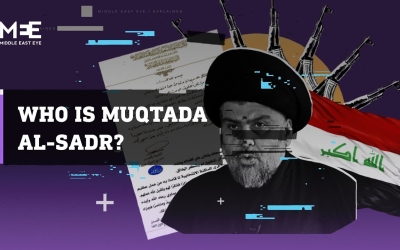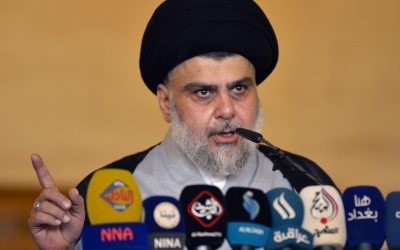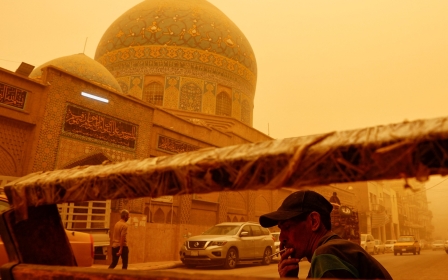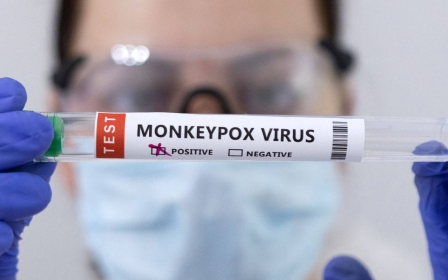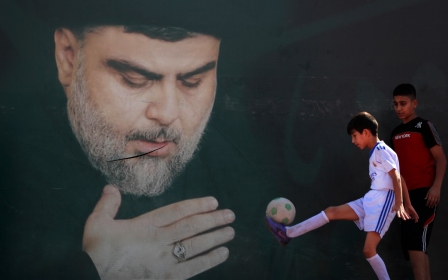Monkeypox: Iraq's gay community fears attacks after cleric claims virus linked to homosexuality
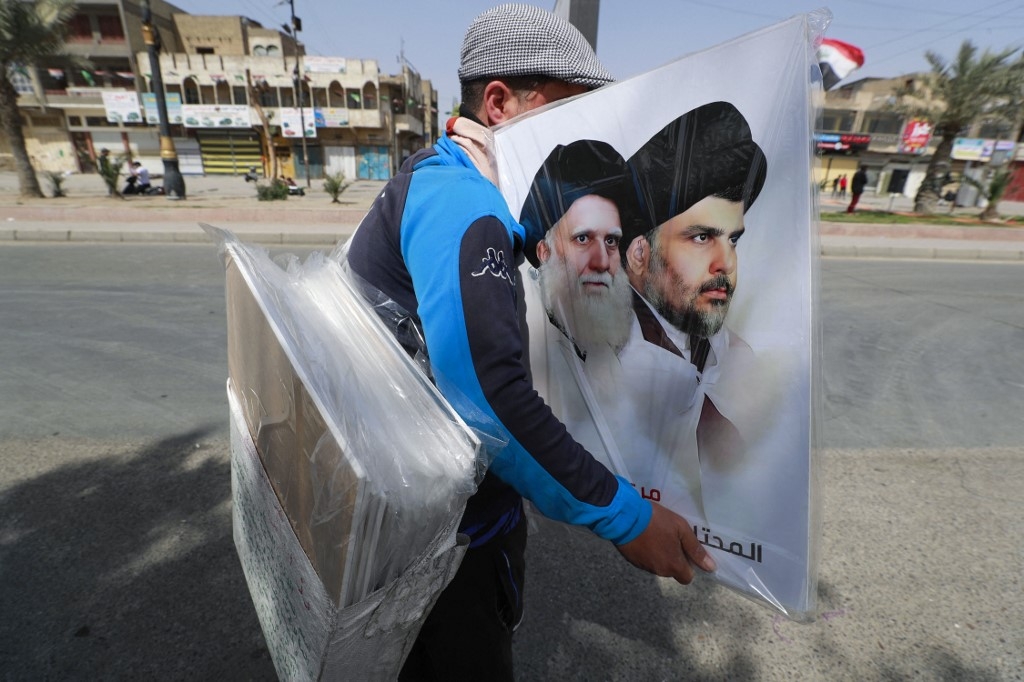
Muqtada al-Sadr, Iraq's most influential Shia cleric, has triggered fears of further assaults on lesbian, gay, transgender and queer (LGBTQ) communities after wrongly linking the monkeypox virus to homosexuality.
In a statement published on his verified Twitter account on 23 May, Sadr suggested monkeypox was a result of homosexual behaviour, as some of the early cases detected in the latest global wave were among gay men.
"I call on them [homosexuals] to repent," he wrote, then went on to call for repealing laws upholding gay rights in order to "protect humanity from the monkeypox epidemic or what we call homosexual-pox".
He also proposed designating a day every year to express opposition to homosexuality.
Sadr has millions of supporters in Iraq and controls the largest bloc in the recently elected parliament.
New MEE newsletter: Jerusalem Dispatch
Sign up to get the latest insights and analysis on Israel-Palestine, alongside Turkey Unpacked and other MEE newsletters
Homosexuality is not officially illegal in Iraq, but being publicly queer is not socially accepted, which constantly puts the community at risk of threats and abuse.
Human Rights Watch has said that LGBTQ+ communities in Iraq live under the constant threat of abduction, rape, torture and murder at the hands of armed groups and the police.
In 2016, Sadr himself called for an end to violence against the community, in a statement welcomed by HRW and other rights groups. But this is not the first time that Sadr blamed the LGBTQ+ community for disease outbreaks. He also blamed the outbreak of the coronavirus pandemic on the legalisation of gay marriage in western countries.
No cases of monkeypox have been detected in Iraq so far. Israel and the United Arab Emirates are the only Middle Eastern countries to record cases of the virus as of Thursday.
The WHO issued a public health advisory after the uptick in monkeypox cases, specifically addressed to LGBTQ+ people and "men who have sex with men" due to the fact that the virus had been identified in these communities.
But the organisation emphasised that the risk of the virus was not limited to men who have sex with men.
"Monkeypox is transmitted to humans through close contact with an infected person or animal, or with material contaminated with the virus," the WHO said.
'Hate speech'
Sadr's statements went viral on social media platforms. Mohammed, a documentation officer at the Iraqi advocacy group IraQueer, said the WHO's advice had unintended consequences.
"A statement like this will have consequences far beyond what the WHO might have intended. This identification/information of men who have sex with men does not do any good to anyone. This information should not be published when we are living in a homophobic world," Mohammed told Middle East Eye.
Mohammed added that Sadr's statements constituted "hate speech" against LGBTQ+ communities.
Sadr aims, he said, to distract the public from other important issues and the political unrest in the country while reacting to the growing visibility of LGBTQ+ communities in Iraq.
"Politicians are realising that they can no longer ignore the LGBT+ movement and deny its existence. Therefore, they scapegoat LGBT+ individuals not only to distract the public, but also as a way to counteract the LGBT+ movement that has been emerging," he told MEE.
"This will, unfortunately, be at the cost of Iraqi LGBT+ lives," he added.
'This dangerous tweet constitutes a very clear and direct threat to my life and that of all other LGBTQ people'
- Mohammed Qasim
Mohammed Qasim, a 27-year-old gay Iraqi, told MEE that Sadr's tweet could jeopardise the life of LGBTQ+ people in the country.
"This dangerous tweet constitutes a very clear and direct threat to my life and that of all other LGBTQ people, especially since I live in a very conservative city," he said.
Many members of LGBTQ+ communities in Iraq have fled the country to seek asylum in Europe in search of a safer life.
"The Iraqi passport is not good enough to get visas for safe European countries. This is why I am trying to protect myself as much as I can," added Qasim.
"My boyfriend and I travelled to Turkey, seeking a safe place due to the threats we got in Iraq, but I came back home as my mother was sick. I am not visibly gay. I try to dress like a heterosexual man just to keep people’s eyes away from me."
In February, a well-known Kurdish make-up artist and transgender woman, Doski Azad, was reportedly shot dead by her brother in what authorities have described as an "honour killing".
Sadr 'is not a virologist'
Mohammed Gailan, a human rights advocate, said Sadr used his religious position to appeal to his supporters.
"He is populist, so he relies on these impulsive statements to attract more of his ignorant followers," said Gailan.
"Some people would argue that he is Islamist, but I would say that he is politicising Islamic Sharia, and his contradictory statement back in 2016 is a piece of clear evidence that he was trying to win the international community's approval."
Others criticised Sadr for making personal conclusions in matters that require scientific evidence.
"When I heard about Sadr's tweet, it made me curious to learn more about the monkeypox virus," said Bashar Taha, a gay make-up artist from Iraqi Kurdistan who lives in self-imposed exile in a European country.
"I started Googling the new virus, asked friends and specialists, but there was no evidence that only being homosexual could transmit the disease.
"He is not a virologist but a religious figure," he added. "Medicine is not his profession."
Middle East Eye delivers independent and unrivalled coverage and analysis of the Middle East, North Africa and beyond. To learn more about republishing this content and the associated fees, please fill out this form. More about MEE can be found here.


